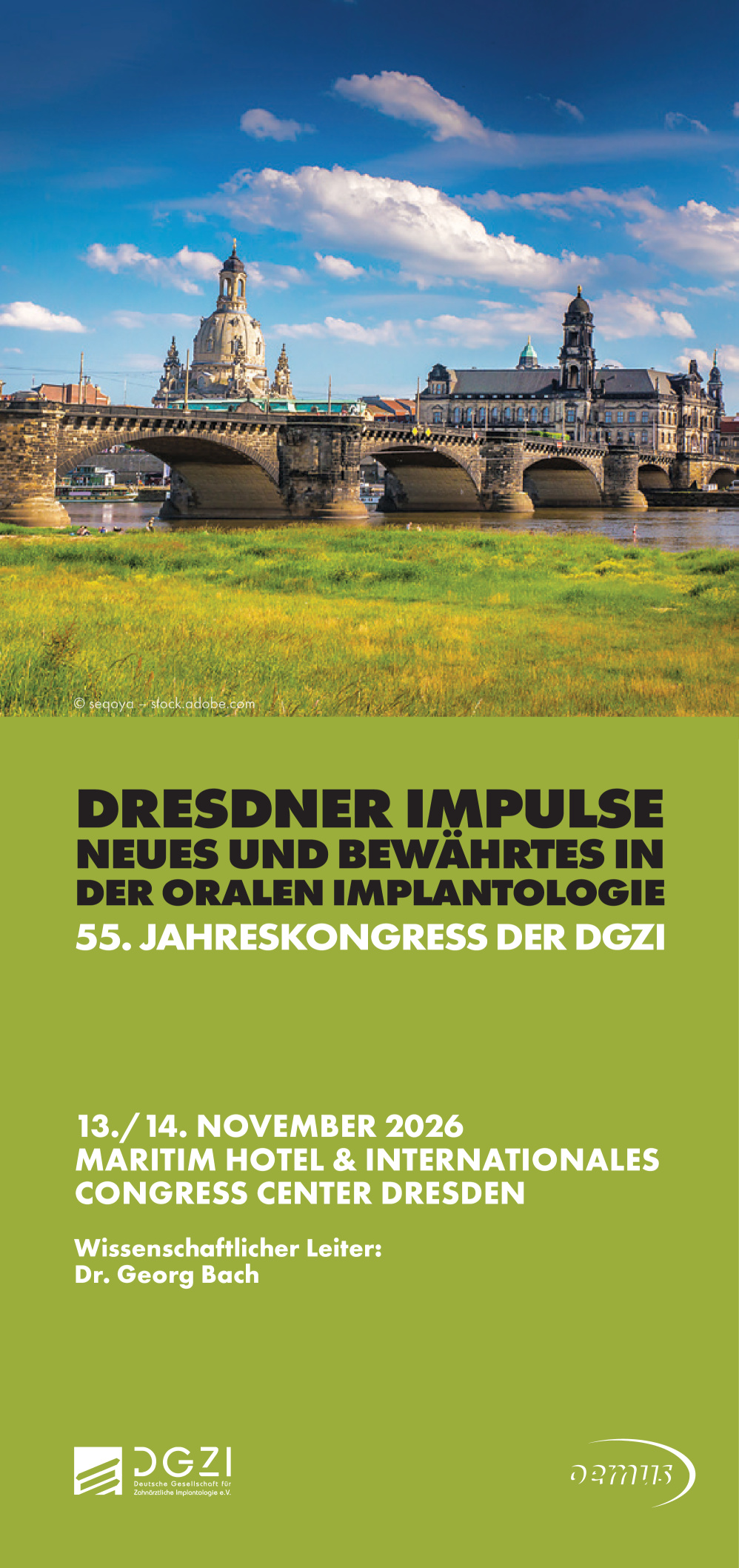Education across borders
 Fig. 1: DGZI vice president Dr Vollmer (center) with the DGZI representatives from Sudan.
Fig. 1: DGZI vice president Dr Vollmer (center) with the DGZI representatives from Sudan.
Maximise your potential with DGZI’s continuing education on an international level
The medical market, particularly the dental market, is becoming increasingly global, and promoting medical progress in the field of implantology has always been a priority of the German Association of Dental Implantology (DGZI). DGZI, established and registered in 1970, is the oldest dental implantology association in Germany and represents in its more than 50-year history practice-oriented and science-based implant dentistry and has set standards in oral implantology in Germany. Its activities are focused on the continuing education and training of implantologists in Germany and abroad. The goal of these activities is to improve quality and quality assurance, as well as the safety of therapies, in the interest of patients. Globalisation in dentistry has for years been setting new standards in the demand for internationally active implantologists and for German dental clinics that cater to international patients. A large number of German dentists work abroad, have partners all over the world and are very successfully engaged on an international level. Many implantologists have also adapted to this situation and are successfully treating patients from abroad. Especially patients from the Arab region, African countries and countries of the Commonwealth of Independent States appreciate the quality and knowledge of German dentistry and visit Germany for extensive dental treatment.
International exchange on implantological standard
In addition to the focus on established practices, international networking is a cornerstone of DGZI’s philosophy. When it comes to global education, DGZI has also been a pioneer. Dr Rolf Vollmer, DGZI vice president and treasurer, is responsible for the society’s successful foreign policy. In order to disseminate the implantological standard internationally, the German Board of Oral Implantology (GBOI) was launched and certified by DGZI. In 2002, a postgraduate programme offered through cooperation with universities, certified visiting professors and opinion leaders was created. Its mission is to elevate the standard of and to advance the science and art of dental implantology by encouraging its study and improving its practice. Besides providing training opportunities for dental experts from all over the world, the programme allows for professionals to acquire internationally recognised certificates such as the DGZI Expert in Oral Implantology certificate and DGZI Specialist in Oral Implantology certificate. These certificates are simultaneous proof of qualified subject-specific English knowledge. In fulfilling its purpose and objectives, the GBOI follows the guidelines and regulations set by the respective associations in Germany, such as the Bundeszahnärztekammer (German dental association) and Deutsche Gesellschaft für Zahn-, Mund- und Kieferheilkunde (German association of oral and maxillofacial dentistry). It provides international examination procedures to evaluate the profound knowledge, expert skills and special talent required for practitioners to provide comprehensive, safe and effective oral implant therapy solutions for patients. The curriculum of the one-year programme covers surgical anatomy, imaging techniques and preoperative preparation, as well as provides detailed information on at-risk patients, anaesthesia and sedation, odontogenic infections and complications. Furthermore, the programme includes training on surgical basics and traumatology of the teeth and jaws. Also, practical training, patient surgery and e-learning modules are part of the curriculum.
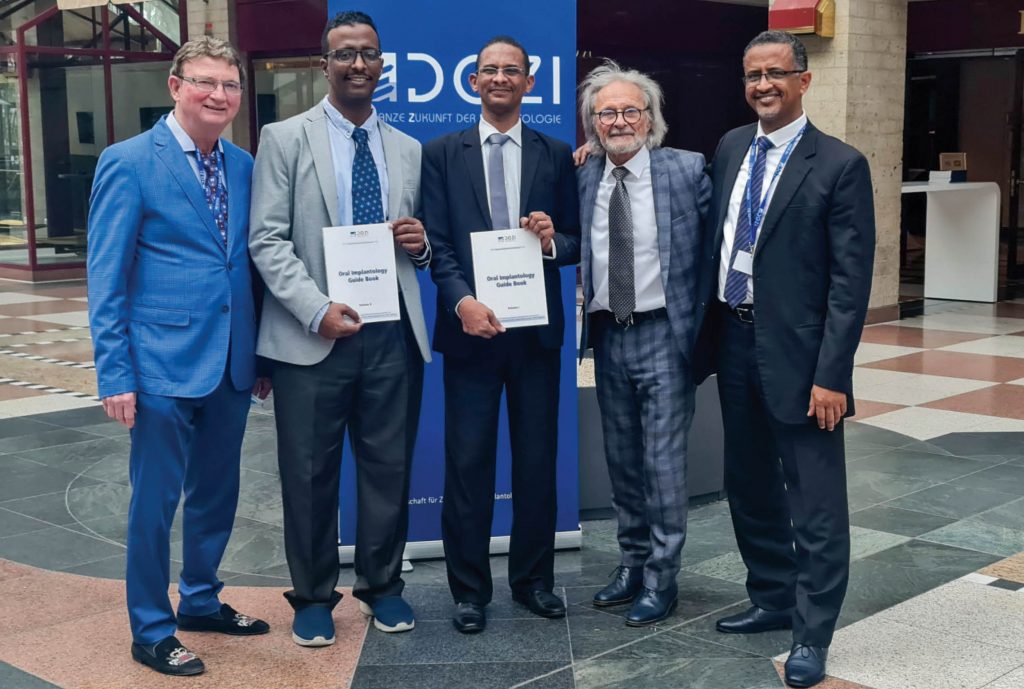
Fig. 2: Congratulations to the examinees from Sudan from the DGZI board members Dr Rolf Vollmer (left) and Dr Rainer Valentin (second from right). 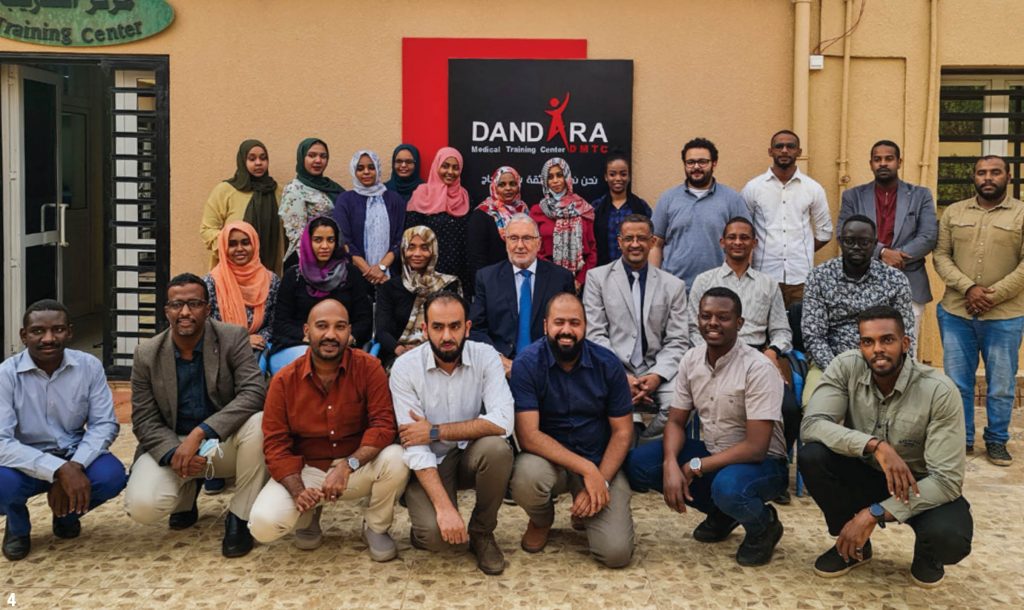
Fig. 4: Group of participants in the GBOI programme in Sudan around Dr Ahmed Fadl. 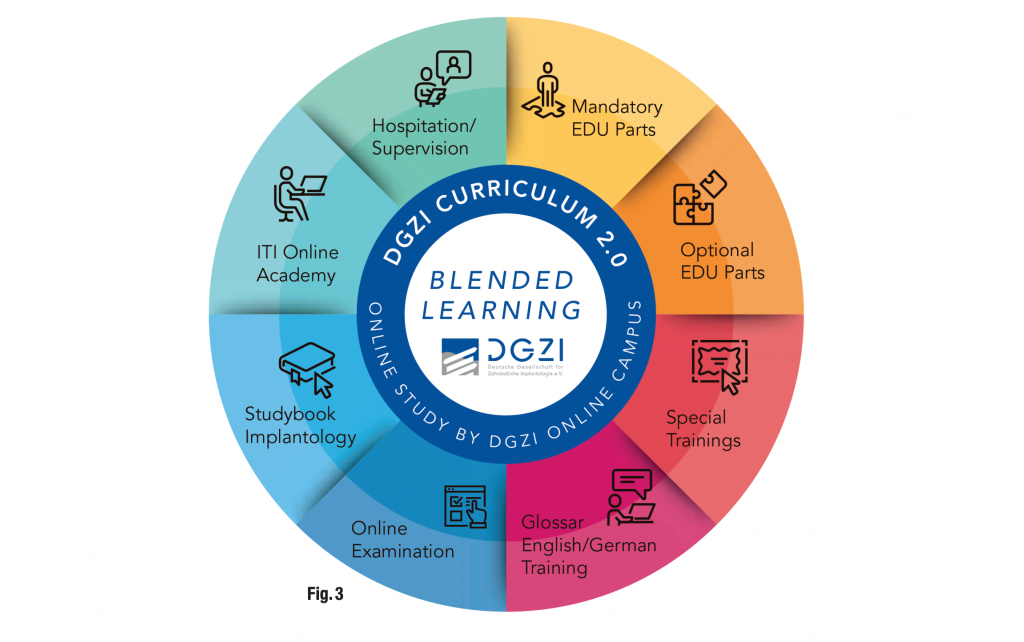
Fig. 3: DGZI Curriculum 2.0 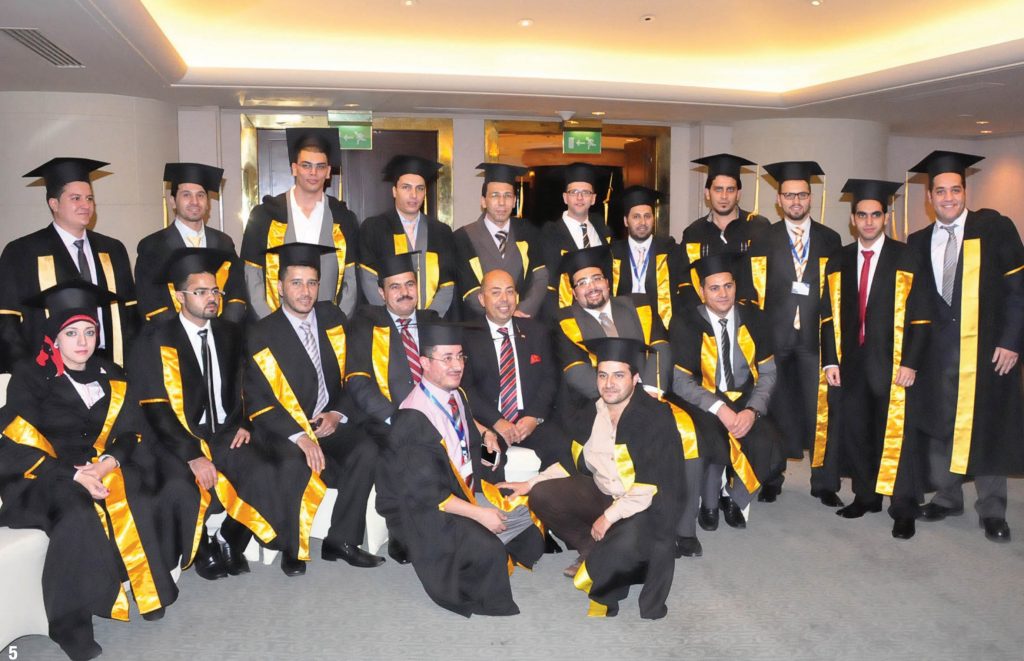
Fig. 5: GBOI graduation ceremony in Cairo, Al Jazira Sofitel Hotel.
Why choose the GBOI curriculum?
The structural education and suitable training promote participants’ success in implant treatment and promote the dental practice too by the dentist having earned the international board-certified qualification and having the certificate on display. The GBOI certificate is a professional qualification awarded by the GBOI and is accredited in all Arab and Gulf countries. Also, it is a step towards obtaining a master’s degree in oral implantology from the University for Continuing Education Krems in Austria.
Learning to perform exact planning avoids mistakes that lead to failures and subsequent medicolegal problems.In Germany, dentistry is ranked fourth regarding cases of suspected malpractice. Of the 14,042 cases of suspected medical errors reported in 2020, 1,198 concerned dentistry and 422 of these could be verified. With 4,337 cases, the disciplines of orthopaedics and trauma surgery had the greatest number of reported allegations. Internal and general medicine recorded 1,634 cases and thus ranked second.
DGZI Curriculum 2.0
In 2019, DGZI introduced its online campus, a modern, innovative and, above all, convenient solution for participants. After the launch of the German campus, the English version for international DGZI members followed in 2020. Especially in times when face-to-face training has been almost impossible, online offerings are playing an increasingly important role in the education and training of dentists. Initially developed only for curricular training at home and abroad, the online campus was opened to all interested dentists, offering this continuing education opportunity to a wider audience. The structure and content of DGZI’s successful implantology curriculum was revised in 2019. In addition, all course participants receive access to the ITI Academy, through which young dentists and those with little experience in implantology can learn the fundamentals of dental implantology (Fig. 3)
The new DGZI Online Campus has been completely redesigned and enables e-learning from all devices and from anywhere with Internet access. Well-prepared content, intermediate examinations and a final examination provide the participant with constant feedback on the level of knowledge he or she has achieved and thus prepare him or her for the practical modules in the curriculum. Each block ends with a learning success check. The practical modules, however, can be practised as often as desired in advance of examinations. Since not only theoretical basics are necessary for curricular training, participants also start with practical modules in the face-to-face further training after completing the theoretical training online. Special implant prosthetics, hard- and soft-tissue management, and an anatomy course with work on human specimens form the foundation of the practical modules, which are then supplemented by two further elective modules with freely selectable topics of dental work.
In conclusion, it can be stated that, with regard to the international implantological standard of the future, DGZI/GBOI will continue to work actively on this topic with the aim of mediating between science and clinical practice around the world and continue to validate the relevance of this professional society.
contact
DGZI e.V.
+49 211 1697077
sekretariat@dgzi-info.de
www.dgzi.de

